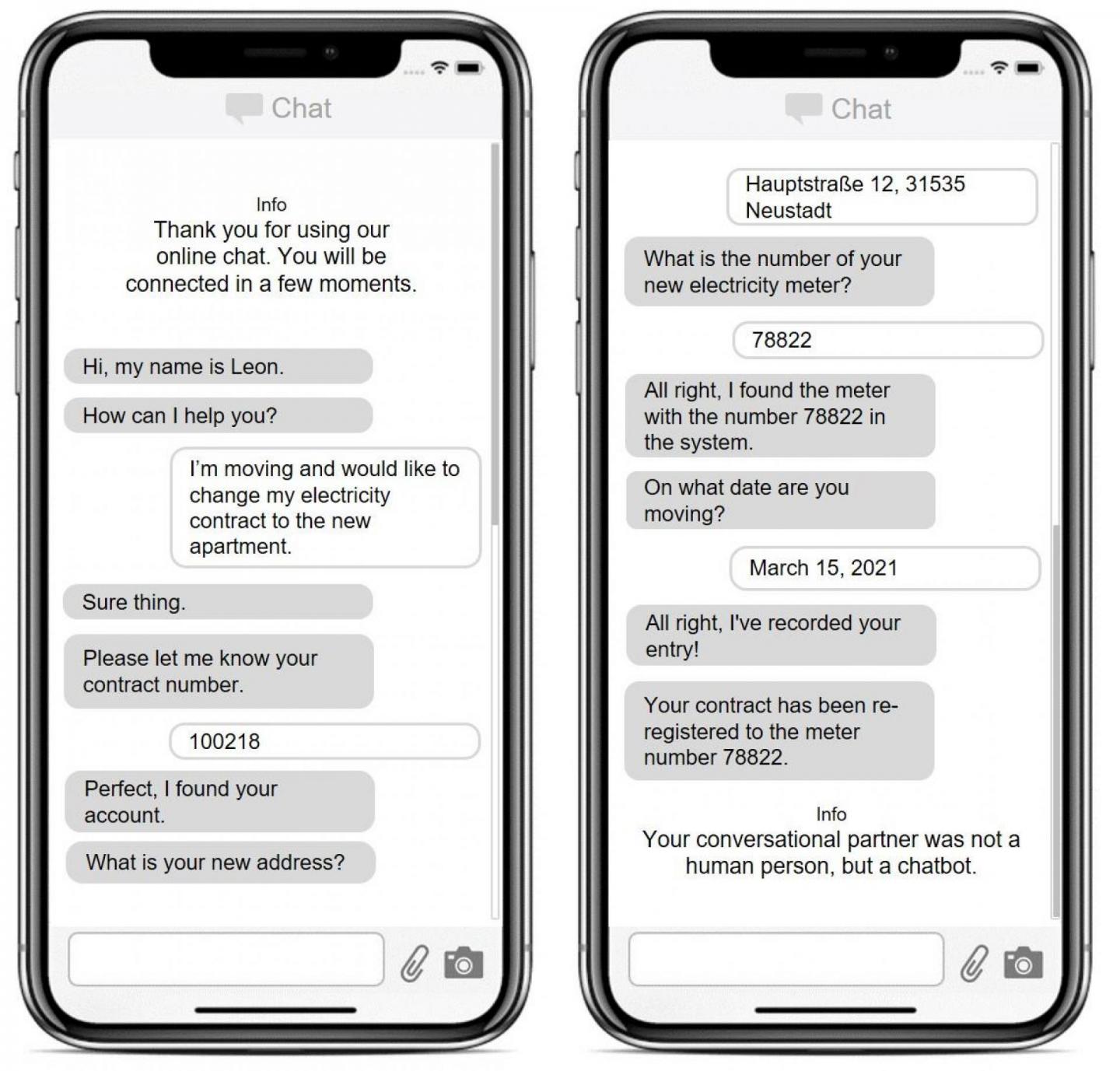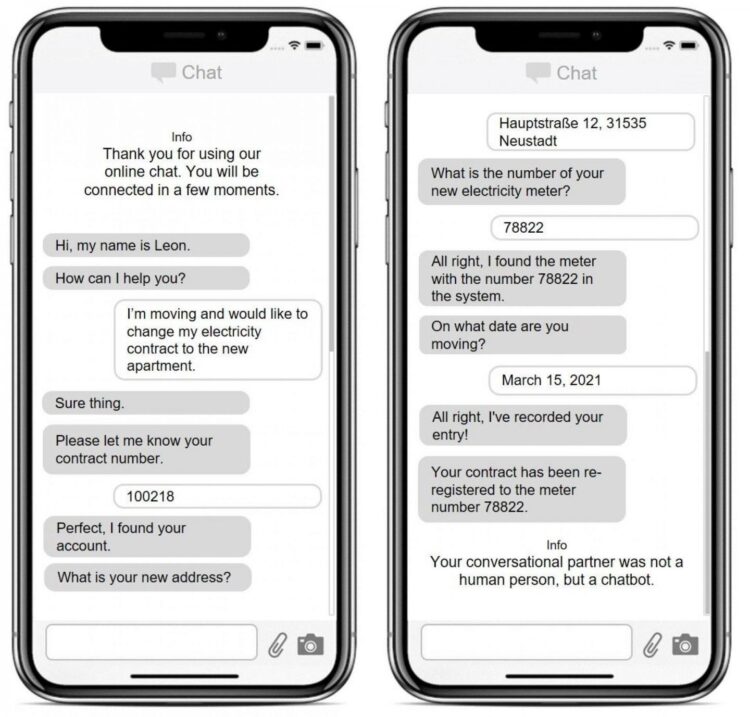Göttingen University researchers investigate effect of non-human conversation partners in customer services

Credit: Mozafari
More and more companies are using chatbots in customer services. Due to advances in artificial intelligence and natural language processing, chatbots are often indistinguishable from humans when it comes to communication. But should companies let their customers know that they are communicating with machines and not with humans? Researchers at the University of Göttingen investigated. Their research found that consumers tend to react negatively when they learn that the person they are talking to is, in fact, a chatbot. However, if the chatbot makes mistakes and cannot solve a customer’s problem, the disclosure triggers a positive reaction. The results of the study were published in the Journal of Service Management.
Previous studies have shown that consumers have a negative reaction when they learn that they are communicating with chatbots – it seems that consumers are inherently averse to the technology. In two experimental studies, the Göttingen University team investigated whether this is always the case. Each study had 200 participants, each of whom was put into the scenario where they had to contact their energy provider via online chat to update their address on their electricity contract following a move. In the chat, they encountered a chatbot – but only half of them were informed that they were chatting online with a non-human contact. The first study investigated the impact of making this disclosure depending on how important the customer perceives the resolution of their service query to be. In a second study, the team investigated the impact of making this disclosure depending on whether the chatbot was able to resolve the customer’s query or not. To investigate the effects, the team used statistical analyses such as covariance and mediation analysis.
The result: most noticeably, if service issues are perceived as particularly important or critical, there is a negative reaction when it is revealed that the conversation partner is a chatbot. This scenario weakens customer trust. Interestingly, however, the results also show that disclosing that the contact was a chatbot leads to positive customer reactions in cases where the chatbot cannot resolve the customer’s issue. “If their issue isn’t resolved, disclosing that they were talking with a chatbot, makes it easier for the consumer to understand the root cause of the error,” says first author Nika Mozafari from the University of Göttingen. “A chatbot is more likely to be forgiven for making a mistake than a human.” In this scenario, customer loyalty can even improve.
###
Original publication: Mozafari, Nika, Weiger, Welf H. and Hammerschmidt, Maik (2021), “Trust me, I’m a bot – repercussions of chatbot disclosure in different service frontline settings”, Journal of Service Management. https:/
Contact:
Nika Mozafari, MSc
University of Göttingen
Marketing and Innovation Management
Platz der Göttinger Sieben 3, 37073 Göttingen, Germany
Tel: +49 (0) 551 39-39-26546
Email: [email protected]
Media Contact
Melissa Sollich
[email protected]
Original Source
https:/
Related Journal Article
http://dx.





